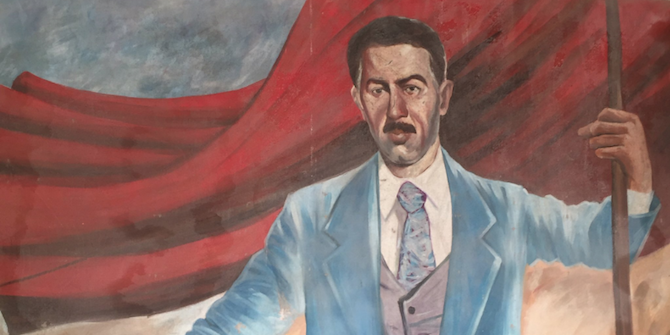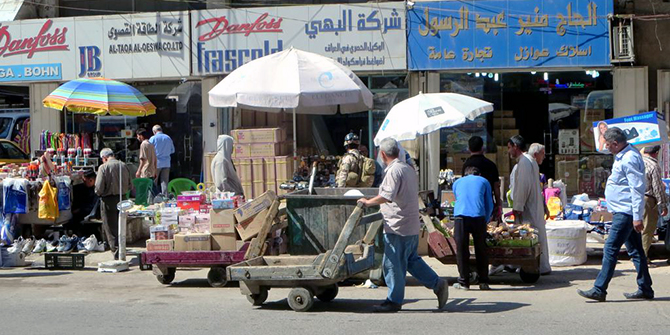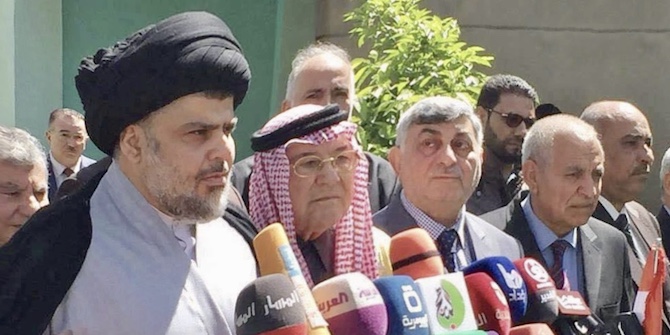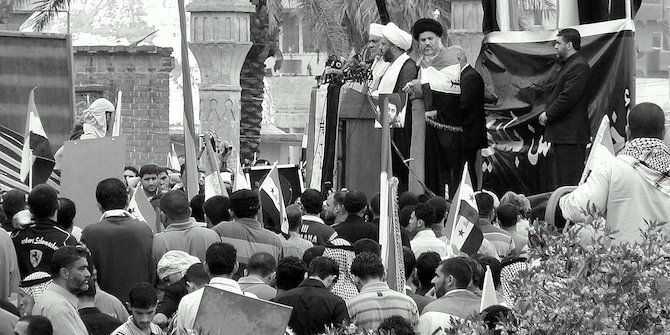by Kawa Besarani

This article is part of a collection of tributes to the late Faleh A. Jabar.
Born in one of the poorest and deprived neighbourhoods of Baghdad, Faleh experienced misery firsthand: the lack of job opportunities, no proper health or educational services, whole families living cramped in one or two rooms. This experience strongly influenced and affected the way he was grew up and his future life, both in a personal, but particularly in a political sense.
Although Faleh went through many changes in his political life, he remained true to his core belief of the need for progressive social and economic change in society, not only in Iraq but in the Arab world in general. That is one reason why he was able to work at both Palestinian and Lebanese newspapers during the mid-sixties.
His life underwent a major change in 1973, when he began working as the editor of the international section of Tariq Shaib, the organ of the Iraqi Communist Party. His political commitment to the Party grew, as was the case with many Iraqi intellectuals. This put him in direct contact with a new group of people and represented a new stage in his political life. It was during this time that Faleh started to expand his horizons and adopt a more rigorous approach to the analysis of the social fabric of Iraqi society through his many articles, essays and booklets, which took a more comprehensive and critical viewpoint towards the social, economic and political issues facing Iraqi society. It was also the beginning of a new Faleh – more mature politically and intellectually. He managed to build a wider and larger readership for his writings and became one of the most popular writers in Iraq, particularly for young people, who were attracted to his sharp and progressive coverage of political issues, both domestically and internationally.
What characterised Faleh’s personality was his readiness to leave his comfort zone of the office and to go to where the people were, in this way enriching his knowledge and, eventually, in 1982–83, taking up the challenge and joining the partisan movement formed by the Iraqi Communist Party in the Kurdistan mountains, so as to contribute directly to bringing about the political changes that he believed were necessary. This gave him another, very different experience. It cannot have been easy for him to leave an easy urban life to live a much harsher one among the partisans in the mountains. This experience was reflected in his work during the eighties.
There were two periods which significantly affected his work. First, the repercussions of the collapse of the Eastern Bloc, following which he moved to London and started working intensely on the subject of political Islam, which he turned into a PhD thesis; and second, the removal of Saddam Hussein and the establishment of the Middle East Strategic Study Centre in Beirut.
Here the high quality of his work, his ability to think strategically and his thorough and comprehensive research, provided us with a much deeper understanding of social classes, based on the tribal roots within Iraqi society.
Faleh was battling with time, as he knew that he had not very long to live. He was working on different projects at the same time, running from conference to conference and delivering presentations, each seen as a basis for future research. He refused to accept what fate had mapped out for him.
At the moment of his untimely death, Faleh had reached the peak of his intellectual powers and was still actively contributing, both intellectually and academically, to the study of our society. His work, his way of thinking and his contributions on so many levels, will continue to have a significant influence on generations of new scholars to come. He will be hugely missed.
Kawa Besarani is a friend of Faleh Abdul Jabar and co-researcher in Kurdish and Iraqi politics.






